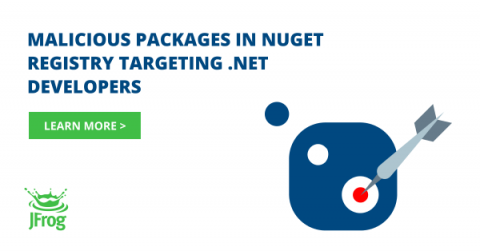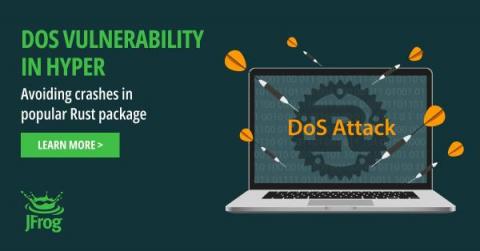Attackers are starting to target .NET developers with malicious-code NuGet packages
Malicious packages are often spread by the open source NPM and PyPI package repositories, with few other repositories affected. Specifically – there was no public evidence of severe malicious activity in the NuGet repository other than spam packages used for spreading phishing links. As with other repositories, the JFrog Security Research team regularly monitors the NuGet repository for malicious packages, including manual analysis of suspicious code.











